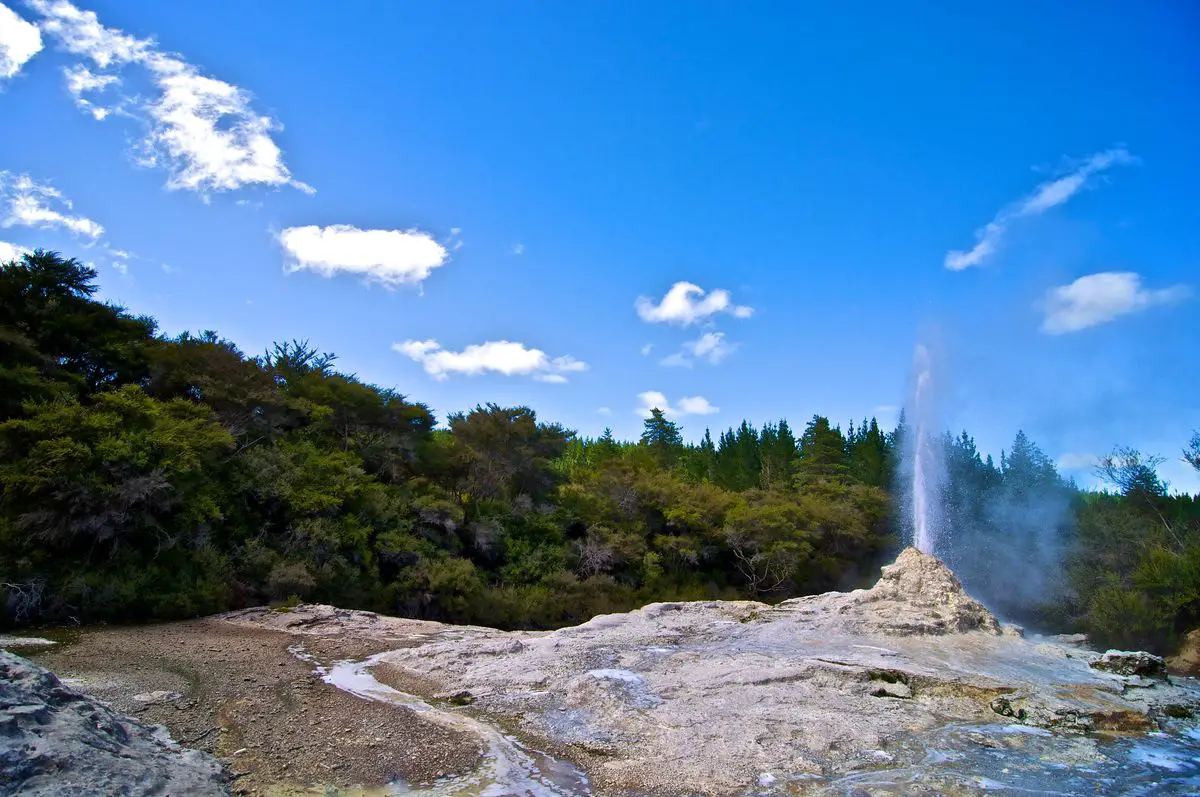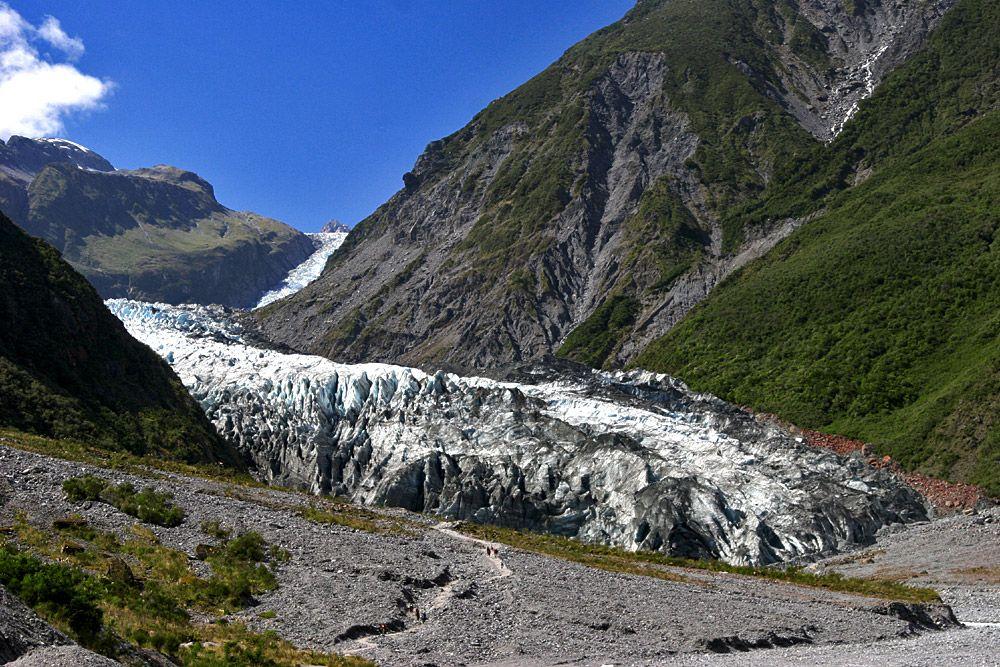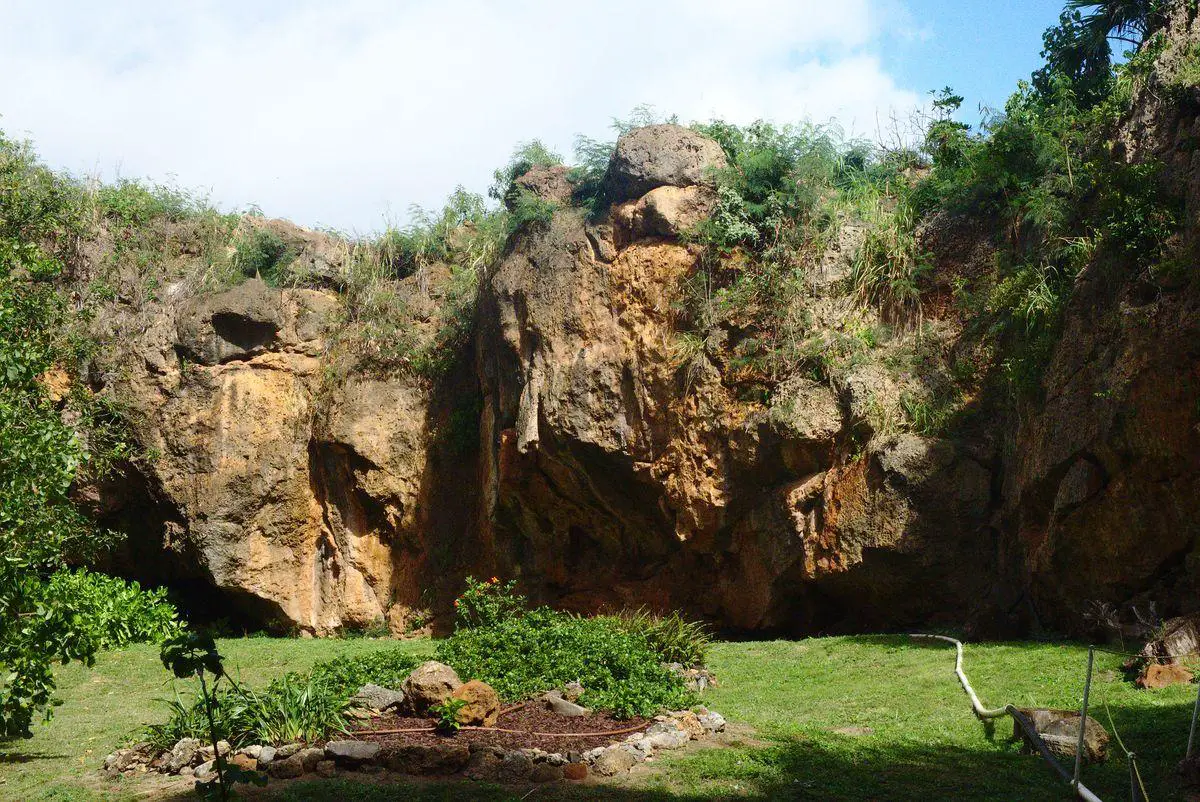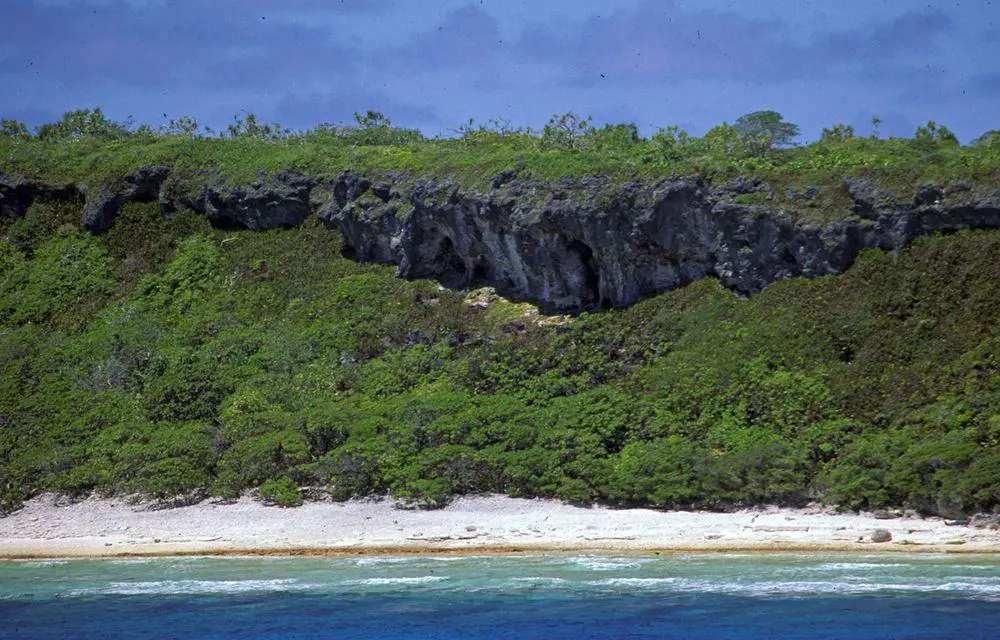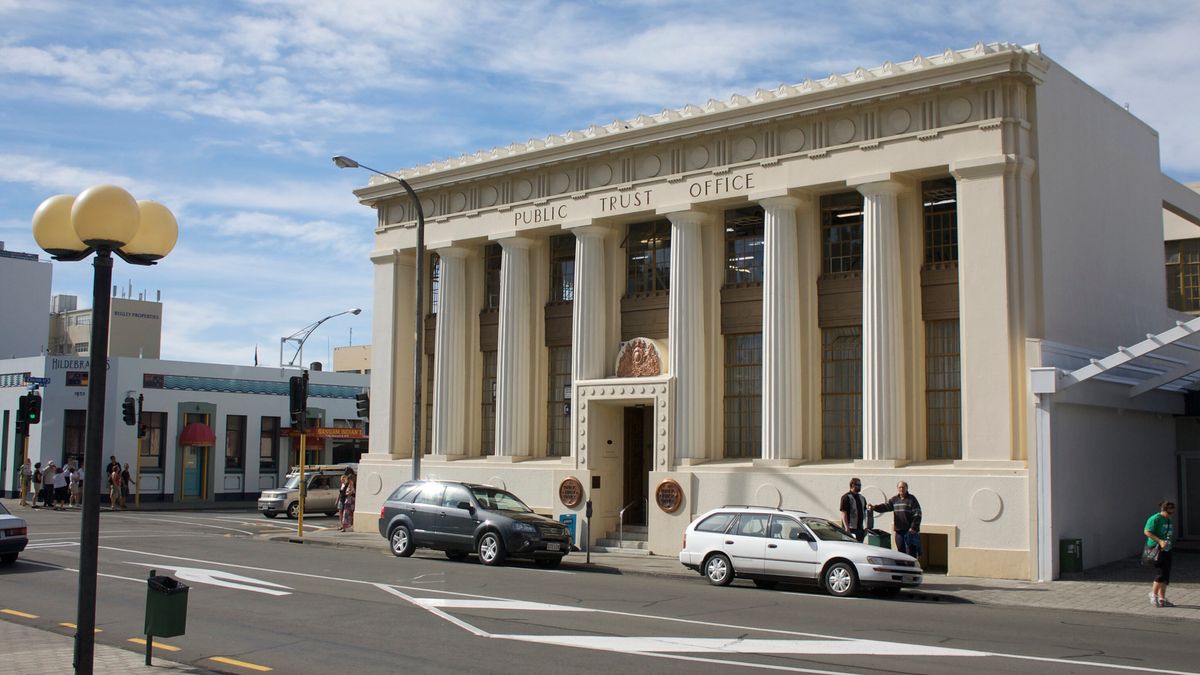Wondermondo 🢖 World 🢖 Wonders of Australia and Oceania 🢖 Wonders of Polynesia
Territory
Wonders of Polynesia
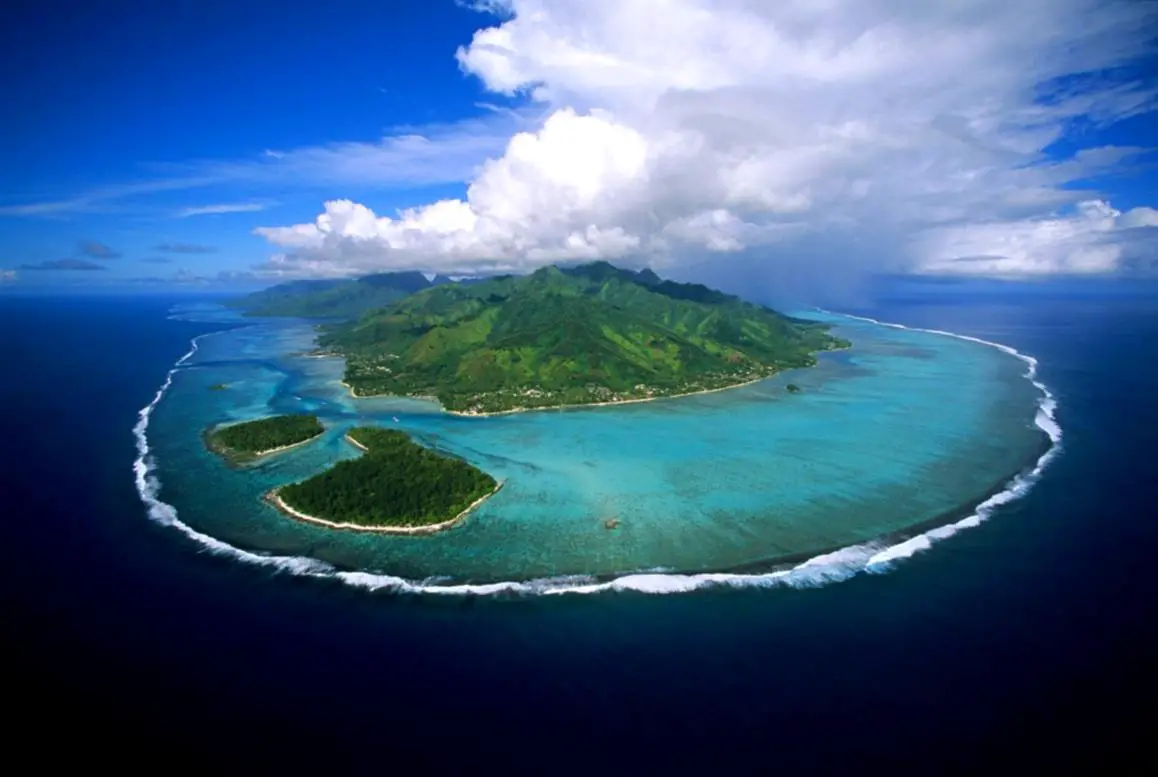
 Highlights
Highlights
Although the landmass of Polynesia is small, the charm and special beauty of this region are some of the most impressive on our planet. These islands are endowed with lush and beautiful nature, with warm ocean and friendly people representing a distinct culture. Polynesia is very rich in both natural and cultural landmarks and many of them are unique.
The most amazing wonders of Polynesia are:
- Unique ecosystems. Polynesia consists mostly of small islands which very often are far from each other. People reached them recently and many islands never have been inhabited. Thus it comes as no wonder that many Polynesian islands have unique species of plants and animals met nowhere else in the world. Some pristine Polynesian ecosystems though are especially surprising and impressive – such as the Central Savai’i Rainforest, the ecosystem of Henderson Island, the Mount Purau rainforest, and others.
- Waterfalls. Even if Polynesia consists of small islands and does not have significant rivers, there exist smaller streams. Sometimes these smaller streams approach a vertical or nearly vertical abyss and tumble down. Some Polynesian waterfalls belong to the tallest in the world – e.g. Olo’upena Falls, Browne Falls, Sutherland Falls.
- Ancient shrines and ceremonial sites – ahu, marae, me’ae, heiau and others. The distinct culture of Polynesians has created some of the most interesting megalithic monuments in the world. A true wonder of the world are the megalithic moai sculptures on Easter Island but not less intriguing are the mysterious me’ae in Marquesas and others.
Countries and territories of Polynesia
- American Samoa (United States)
- Baker Island (United States)
- Chatham Islands (New Zealand)
- Cook Islands (associated with New Zealand)
- Easter Island (Rapa Nui) (Chile)
- French Polynesia (France)
- Hawaii (part of the United States)
- Howland Island (United States)
- Jarvis Island (United States)
- Johnston Atoll (United States)
- Kermadec Islands (New Zealand)
- Kingman Reef (United States)
- Midway Atoll (United States)
- New Zealand
- Niue (associated with New Zealand)
- Palmyra Atoll (United States)
- Pitcairn Islands (United Kingdom)
- Samoa
- Tokelau (administered by New Zealand)
- Tonga
- Tuvalu
- Wallis and Futuna (France)
Map with the described wonders of Polynesia
If you see this after your page is loaded completely, leafletJS files are missing.
 Top 25 wonders of Polynesia
Top 25 wonders of Polynesia
Geological wonders of Polynesia
Milford Sound
New Zealand
One of the most grandiose fiords in the world. The walls of the fiord are more than 2 km tall and while at the water grows rainforest, on the top is snow. Here are countless waterfalls and the strong winds catch and often bring them up in the air.
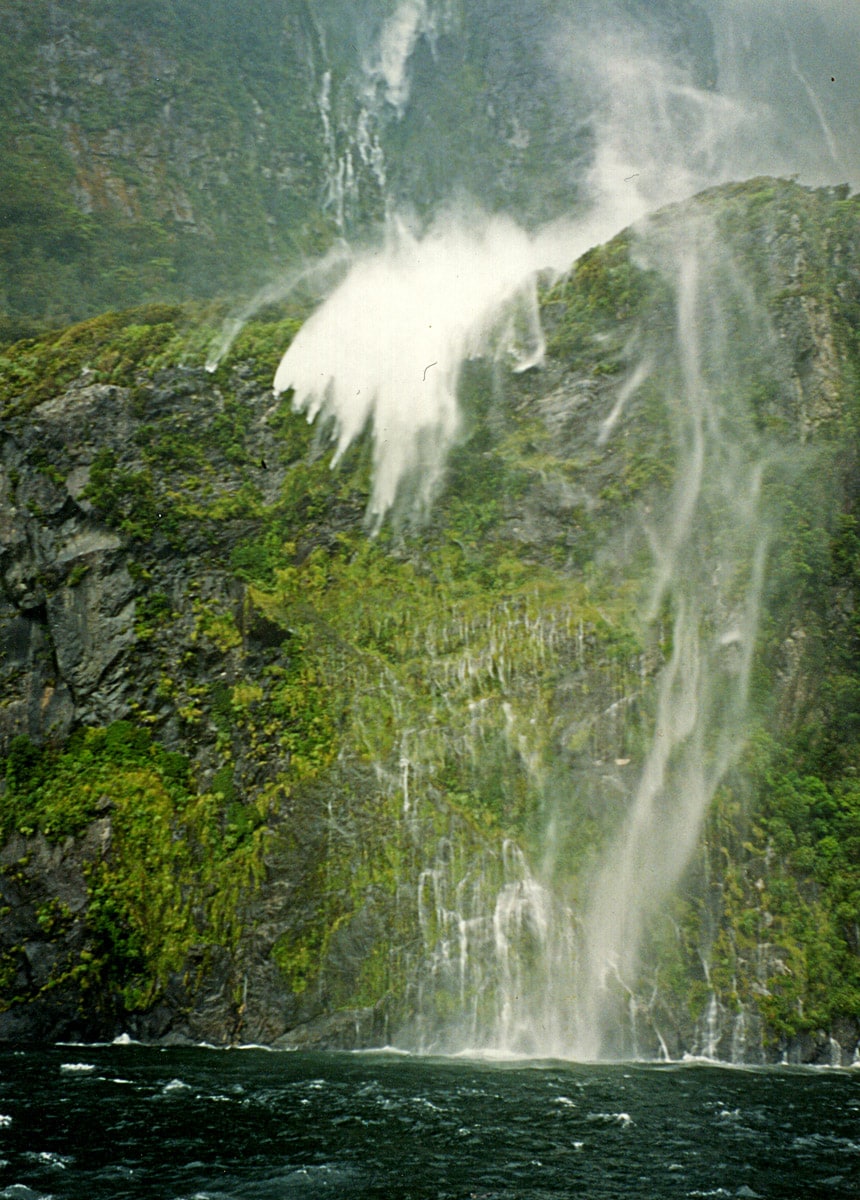
Wai-O-Tapu
New Zealand
One of the most beautiful geothermal areas worldwide. Besides the Lady Knox geyser, mud pools, numerous hot springs, and sinter terraces it contains a highly unusual hot spring – Champagne Pool, constantly filled with carbon dioxide bubbles. Along the rim of this spring are deposited bright orange arsenic and antimony salts.
Champagne Pool
New Zealand
One of the most impressive and unusual hot springs in the world, 65 meters in diameter, and up to 62 meters deep. Spring is filled with 73 °C hot water oversaturated with metalloids and gases, sedimenting bright orange sediments.
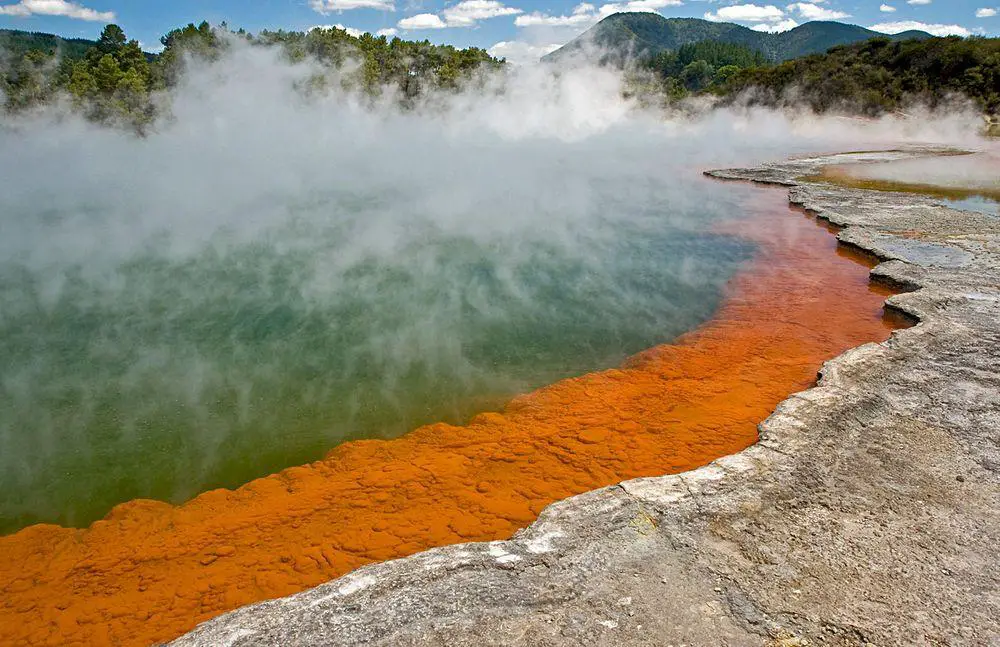
White Island
New Zealand
Active volcano rising 321 m high from the sea as an island. One of the most accessible active marine volcanoes in the world. Fumaroles and boiling mud pools. The crater contains a light blue lake.
Orakei Korako
New Zealand
A geothermal area with unique, colorful sinter terraces and geysers. The largest geyser field in New Zealand with some 35 active geysers. The lower terrace – Emerald Terrace – is the largest sinter terrace in New Zealand. Part of it is flooded by a hydropower station, submerging some 200 hot springs and 70 geysers.
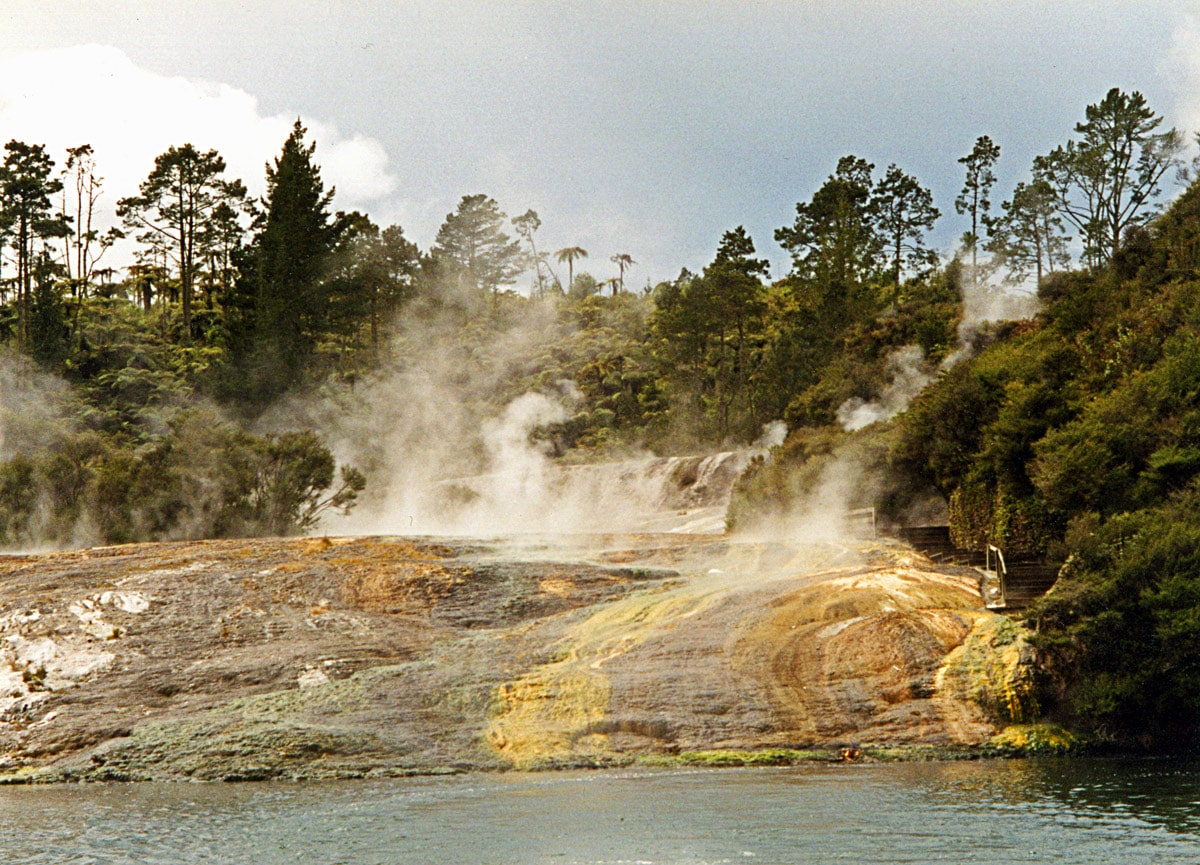
Doubtful Sound
New Zealand
One of the most grandiose fiords in the world.
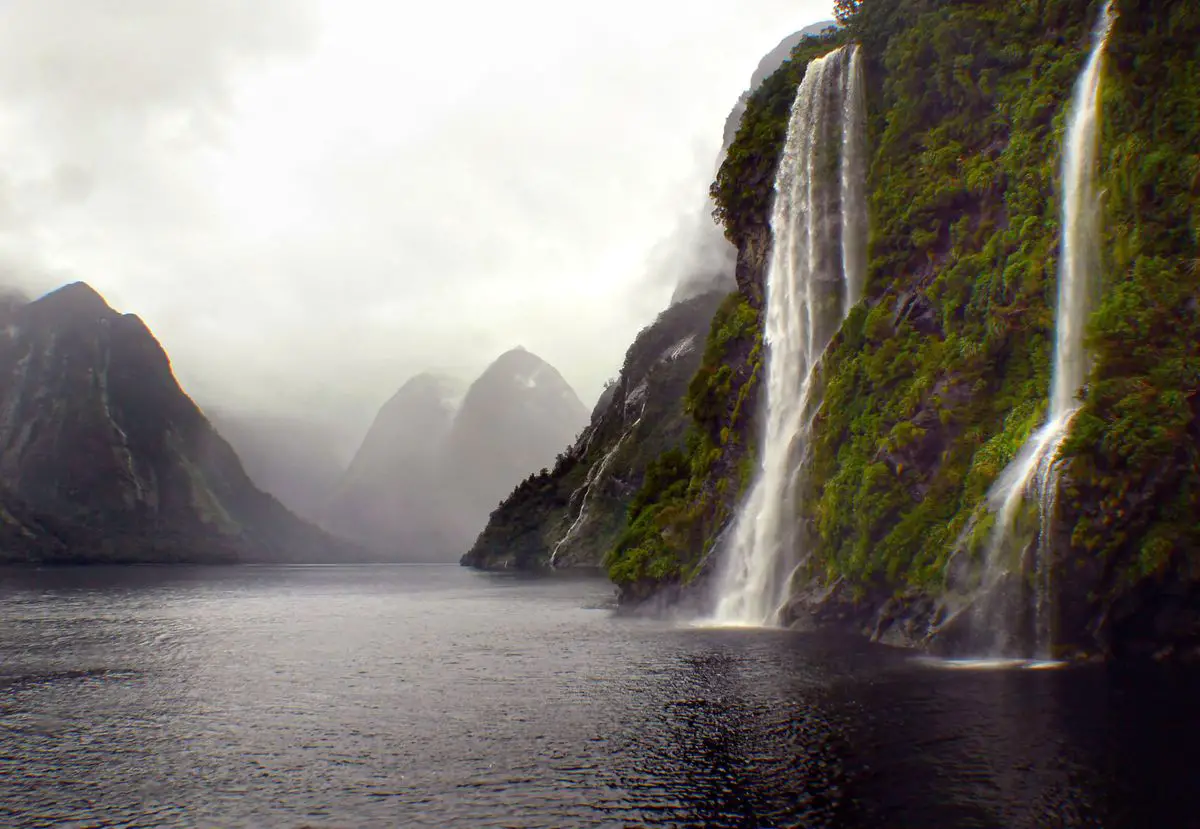
Fox Glacier
New Zealand
Glacier whose descent is so steep that the ice ends up close to the rainforest.
Mauna Loa
United States, Hawaii
Volcano with the largest area in the world among the volcanoes that are above sea level. It rises 4 169 m above sea level and 9 170 m above its base.
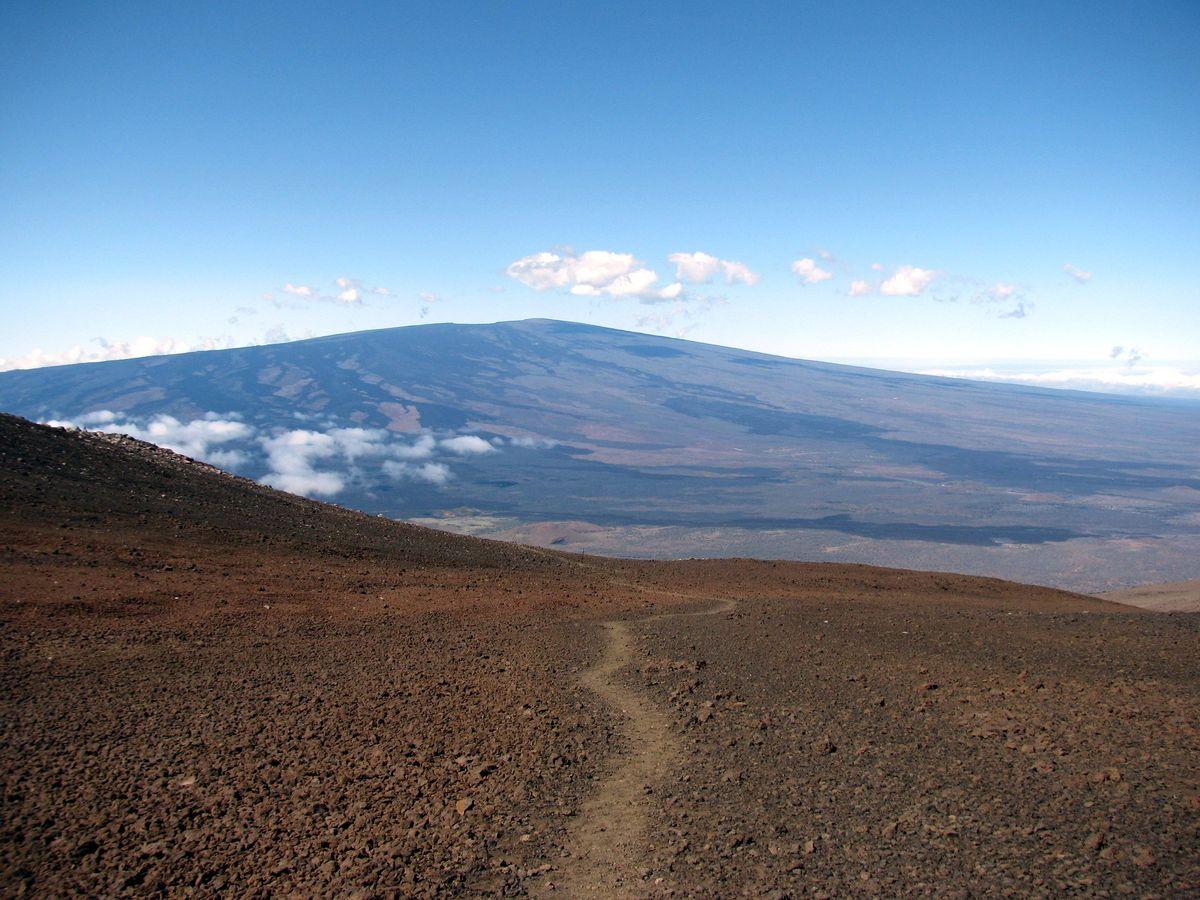
Halemaumau Crater with lava lake, Kilauea
United States, Hawaii
The most active volcano in the world might be Kilauea in Hawaii. The caldera of this volcano contains Halemaumau Crater, which until 2018 was a lava lake.
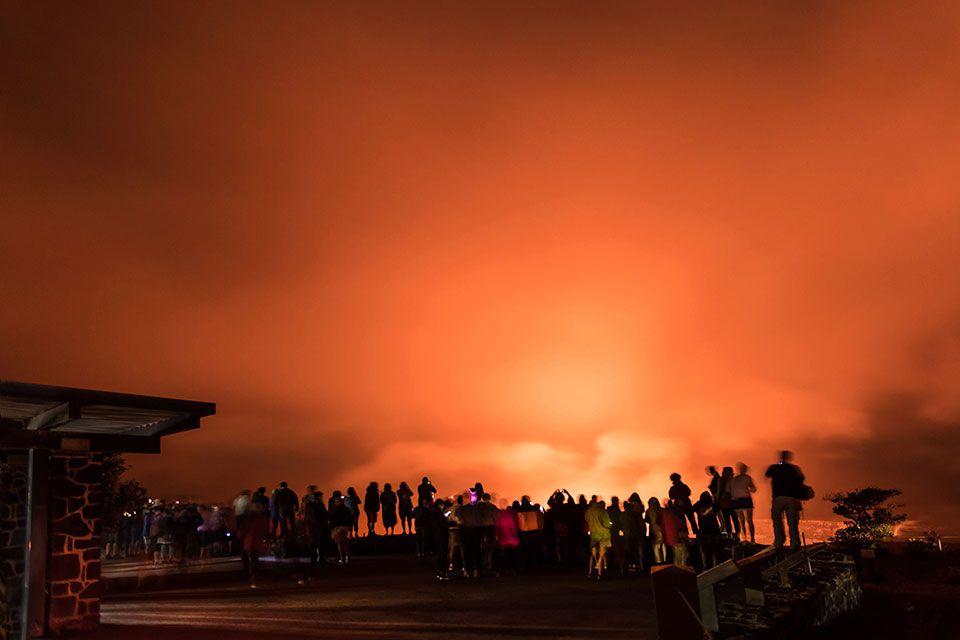
Cathedral Caves
New Zealand
Group of very impressive seaside caves resembling entrances into enormous cathedrals. Two main caves meet, one has up to a 30 m high ceiling.
Whakarewarewa geothermal area
New Zealand
Geothermal area in Rotorua city with unique cultural properties. The facilities offered by geothermal fields have been used by Maori since at least 1350 AD – they developed bathtubs and made food here. The area contains seven active geysers including the up to 30 m high Pohutu Geyser.
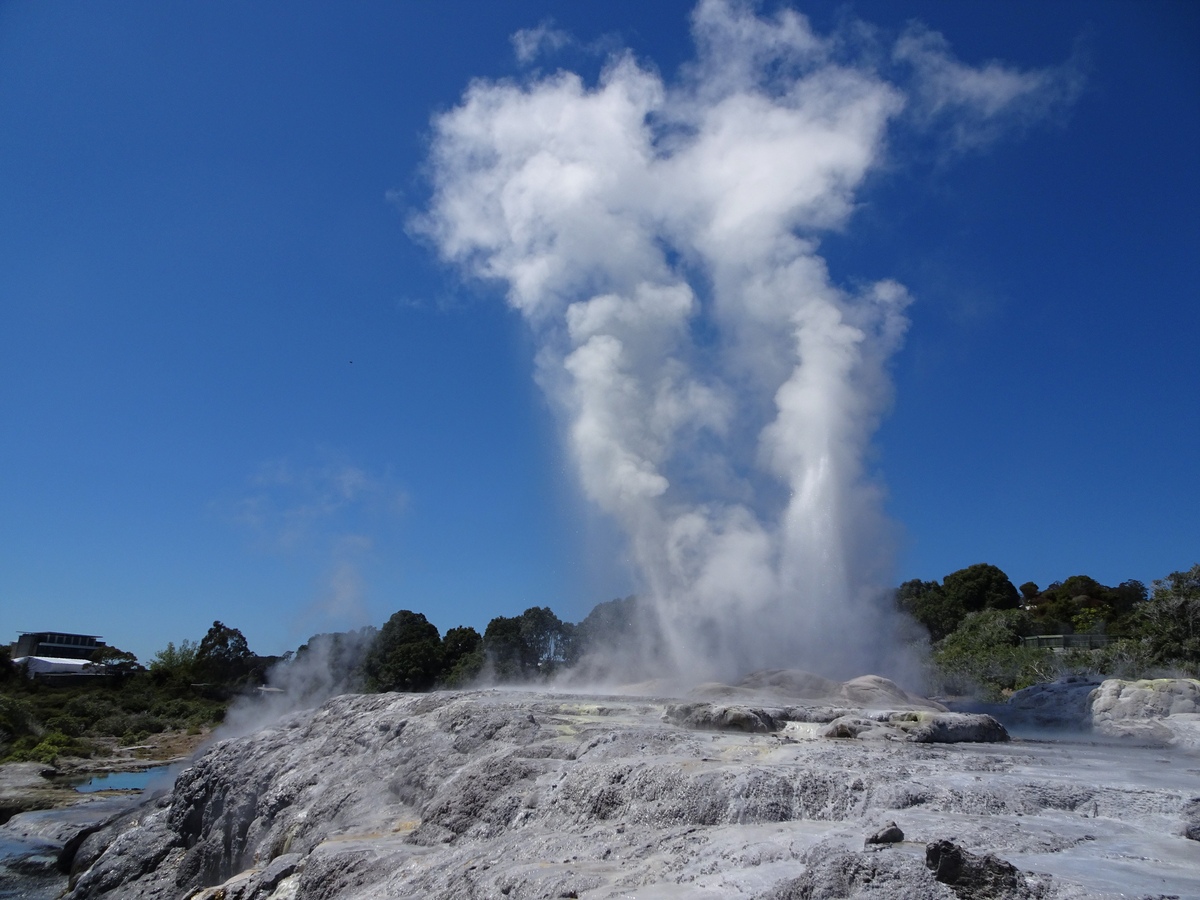
Rotomairewhenua (Blue Lake)
New Zealand
This lake has the clearest water in the world – visibility reaches 80 m. Lake is fed by springs and is located at a height of 1200 m.
Te Waikoropupu Springs
New Zealand
Very powerful (14,000 l/s) spring, renowned due to the clarity of the water with the highest measured lucidity in the world (63 m).
Makauwahi Cave
United States, Hawaii
The largest limestone cave in Hawaii, and the richest fossil find in the Pacific. Graveyard of ancient Hawaiians. The cave contains a sinkhole with a lake. This lake contains a 10,000 years-long history of sedimentation thus providing a very detailed and precise timeline of the natural evolution in Hawai’i. Here have been found remnants of numerous species of extinct birds.
Waimangu geothermal area
New Zealand
Geothermal area, created by Mount Tarawera eruption in 1886. The area contains many interesting features. Frying Pan Lake is the largest hot spring in the world – the area of this hot lake is 3.8 ha. Warbrick Terraces and Marble Terraces are sinter terraces in the process of formation. Inferno Crater is the largest geyser-like lake – a light blue steaming lake with a fluctuating water level.
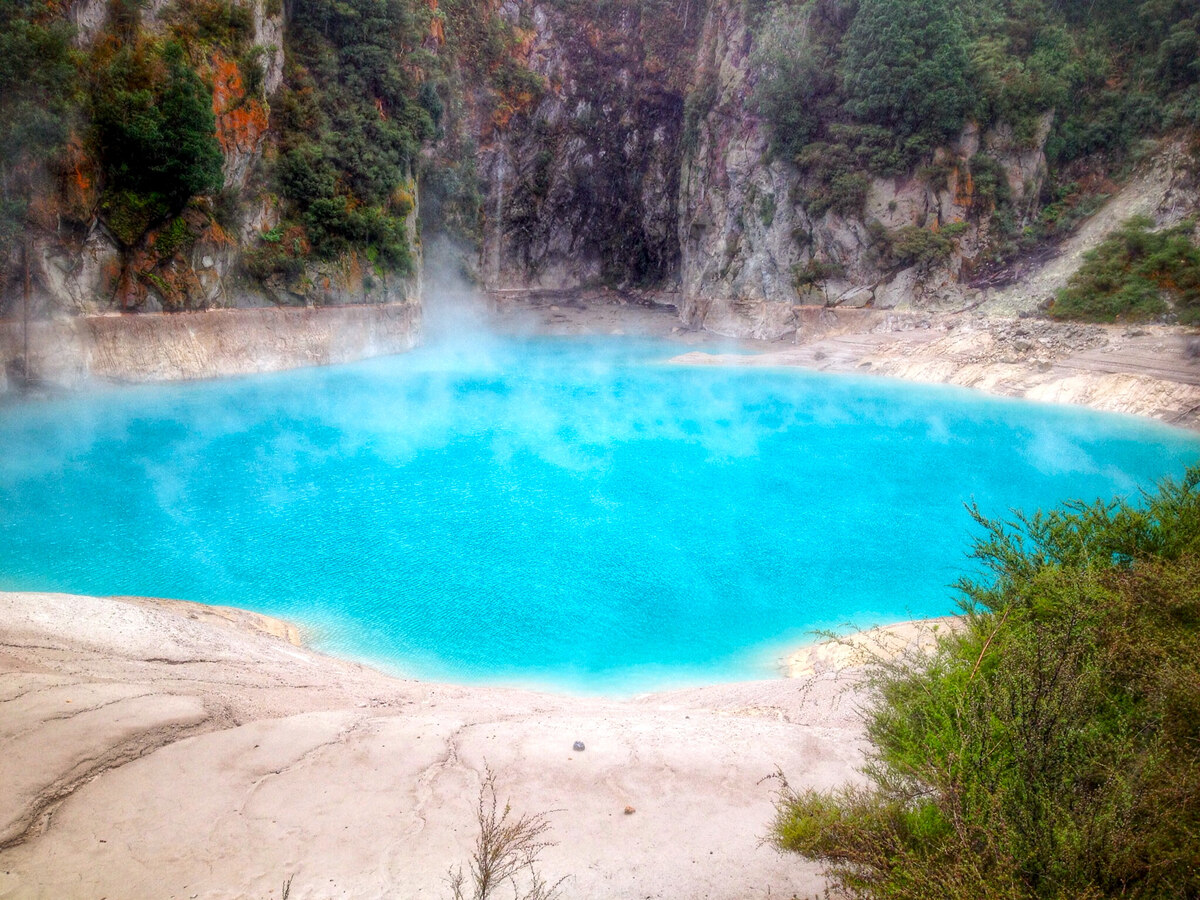
Biological wonders of Polynesia
Ecosystem of Henderson Island
Pitcairn Islands (United Kingdom)
The only forested atoll with an intact ecosystem in the world. Endemic species – 9 species of plants and all 4 species of land birds. Numerous invertebrates are endemic, although they are poorly researched. The island is not walkable – it is covered with thicket and rugged limestone peaks.
Waipoua Forest
New Zealand
The largest remaining New Zealand kauri forest.
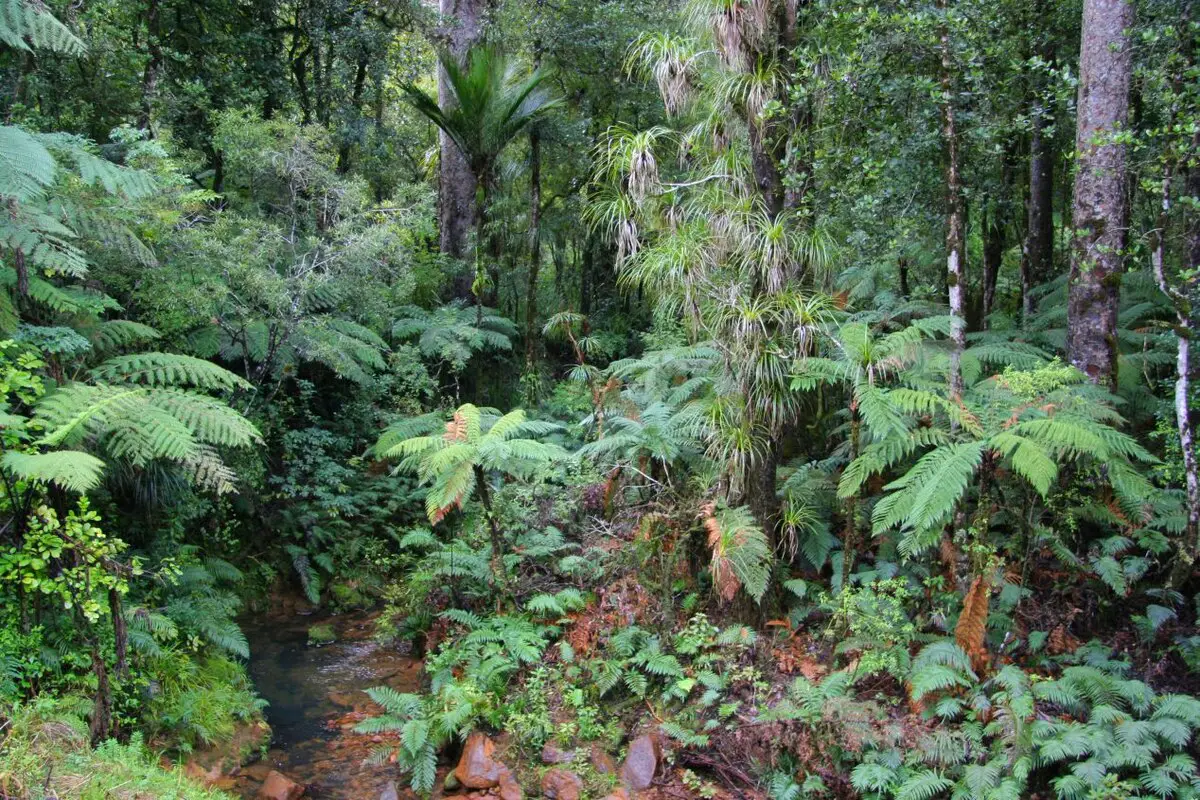
Waitomo Glowworm Cave
New Zealand
The most accessible glowworm cave is adorned with thousands of blue-green glowing Arachnocampa luminosa insects. Glowworms are met in numerous other New Zealand caves as well. In the Waitomo area are located more than 300 caves, often with beautiful cave formations.
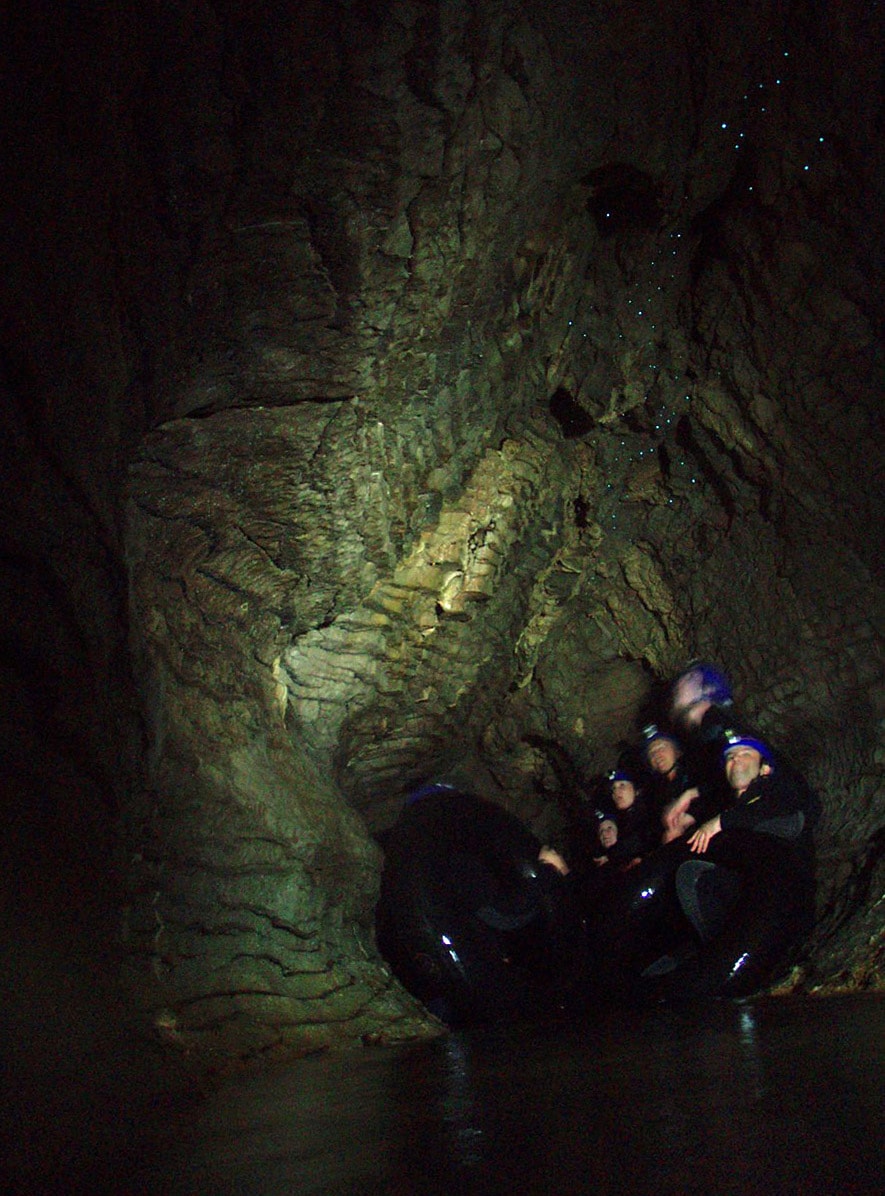
Tāne Mahuta
New Zealand
Largest contemporary kauri (Agathis australis), volume 255 m³. Girth 13.77 m, height 45.2 m. Reports of larger trees in the forest.
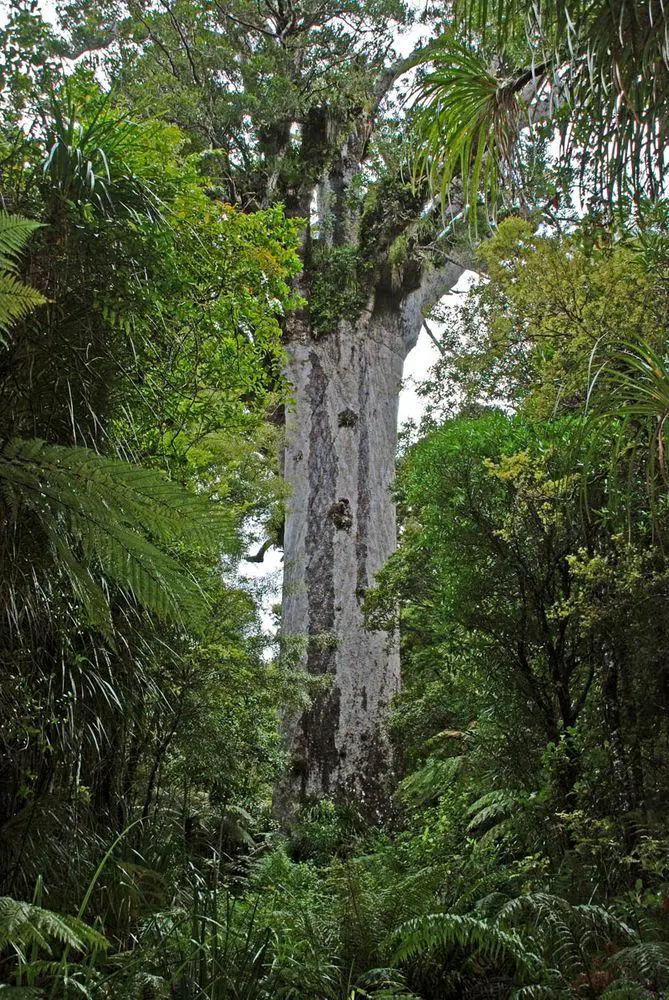
Archaeological wonders of Polynesia
Ahu Tongariki
Easter Island (Rapa Nui) (Chile)
The largest ahu with an unusual history: its moai possibly were toppled during the civil wars and swept inland some 100 meters by a tidal wave in 1960. It is restored and all 15 moai again face the sunset during the summer solstice. Here is the largest standing moai of Rapa Nui – it weighs 86 tons.
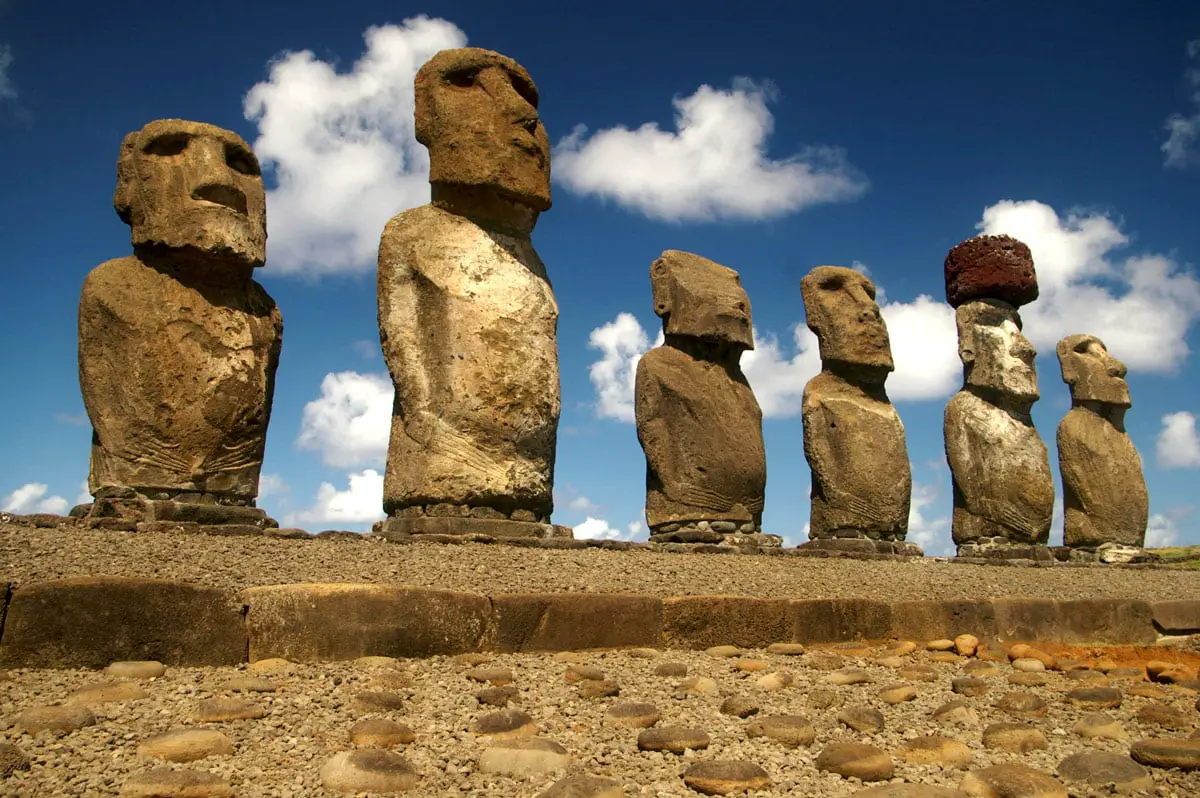
Rano Raraku quarry
Easter Island (Rapa Nui) (Chile)
One of the visually most impressive megalithic monuments in the world. Rano Raraku in 1200 – 1700 AD served as a mine of moai. 397 sculptures are still located in situ, half-made, or left on the way to their destinations. Here is located the largest moai weighing 270 tons and 21.6 m tall, many times larger than any transported moai.
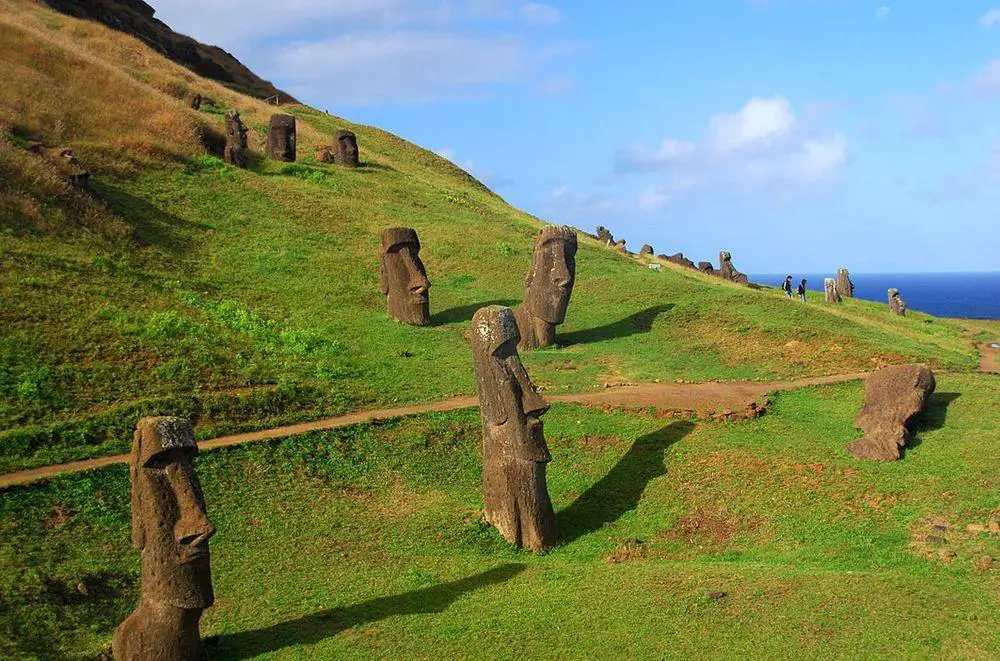
Ahu Akivi
Easter Island (Rapa Nui) (Chile)
A group of seven moai located inland and erected after 1400 AD and restored in 1960. These moai face a village that has been abandoned long ago. This group of moai faces the sunrise during the spring and autumn equinox.
Ahu Tahai
Easter Island (Rapa Nui) (Chile)
This ahu consists of five moais and faces an old village site – this village could be inhabited already by the 8th century (the earliest dated settlement on the island). Ahu has been built already in the 8th – 10th centuries, although moais most likely have been built later. Here nearby is located beautiful hare paenga – the foundation of a house of higher status.
Architecture wonders of Polynesia
Mauna Kea Observatory
United States, Hawaii
Group of astronomical research facilities on the summit of Mauna Kea. In total there are 12 telescopes, each in separate buildings, some telescopes belong to the largest in the world. This is a special land use zone, named “Astronomy Precinct” and was established in 1967. The summit of Mauna Kea is free of light pollution, there is low humidity, and the atmospheric conditions, in general, are stable.
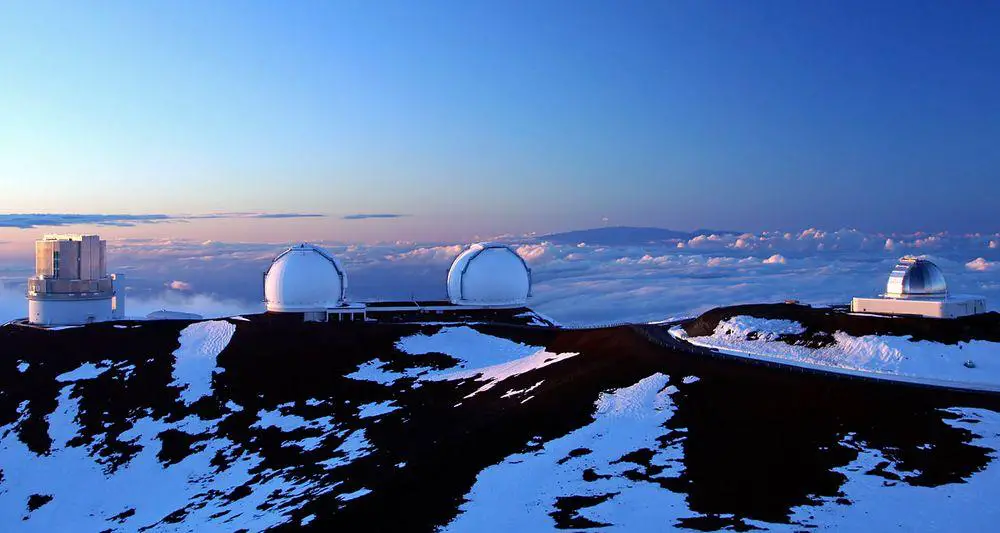
Art Deco architecture in Napier
New Zealand
The town at Hawke’s Bay was destroyed by an earthquake in 1931 and rebuilt in the architectonic style of the time. Thus Napier represents one of the best Art Deco architecture complexes worldwide.
 Recommended books
Recommended books
Nineteen Years in Polynesia: Missionary Life, Travels, and Researches in the Islands of the Pacific
This book was originally published prior to 1923 and represents a reproduction of important historical work, maintaining the same format as the original work. While some publishers have opted to apply OCR (optical character recognition) technology to the process, we believe this leads to sub-optimal results (frequent typographical errors, strange characters, and confusing formatting) and does not adequately preserve the historical character of the original artifact. We believe this work is culturally important in its original archival form.
Nomads of the Wind: A Natural History of Polynesia
Accompanying a BBC2 series, this book tells the story of the Polynesians, a tenacious, voyaging people who sailed across the Pacific Ocean and discovered the paradise islands of the South Seas. Using the power of the wind and navigating by the stars, they crossed thousands of miles of open ocean in search of new lands such as Tahiti, Samoa, and New Zealand. The book explores the colorful plant and animal life that, like the Polynesians themselves, settled every speck of land in this extraordinary island world.

